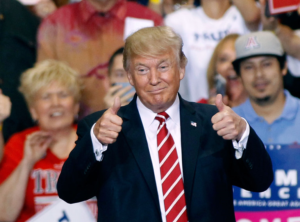I questioned the New York Times’ decision to endorse two candidates for president in the Democratic Party primary.
Also, I cast aspersions on the Dallas Morning News’ decision to recommend two candidates for the U.S. Senate in Texas, also in the Democratic Party primary.
However, I see where the DMN is coming from in announcing Sunday that it will not endorse anyone in the race for president in 2020. Instead, the paper said it plans to focus on the issues that it deems important for voters to consider.
The paper is planning a series of articles titled “What’s at Stake 2020.” It will examine issues such as climate change, education reform, energy policy, war and peace, taxation, federal budgeting, defense policy … a whole host of issues that it believes should be the focus of the presidential campaign.
The paper didn’t say so, but my strong hunch is that the editorial board at the Dallas Morning News might have made a critical determination about the candidates seeking to win election. One is that the incumbent, Donald Trump, has not earned — nor will he ever earn — the paper’s endorsement based on his term in office. The other is none of the Democrats running to succeed him excite the paper enough to win its endorsement.
Near the end of its lengthy editorial, the paper appears to long for a return to civil discourse and declares that its turning to the issues is an avenue toward that noble goal. The Morning News cites President Lincoln’s second inaugural, given as the Civil War was drawing to a close. The president declared his intention to govern “with charity for all and malice toward none.” An assassin, tragically, prevented President Lincoln from fulfilling that noble pledge.
The paper says the election is bigger than Donald Trump or bigger than any of the men and women running to succeed him. It wants to turn its focus on the issues that matter, and away from the personalities who seek to outshout each other.
To that end, the Dallas Morning News has set a constructive path forward as we move more deeply into a contentious election year.






